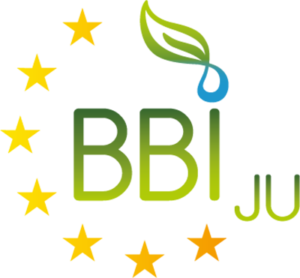Projects
Bright outlook for VIPRISCAR
May 20, 2021
As VIPRISCAR comes to a close, we reflect on the outcomes and even more on the future: new options for producing novel isosorbide-based polymers.
VIPRISCAR: from refineries to biorefineries
All good things must come to an end, but in this case it’s more accurate to say that this is the beginning of something new. We are closing our project VIPRISCAR, and are delighted to share the conclusions of our research with you. Together we look into the future of new non-toxic polycarbonates and non-isocyanate polyurethanes from biorefineries.
Background
For the last three years, VIPRISCAR has been devoted to validating the industrial production of the monomer isosorbide bis(methyl carbonate), or IBMC, for industrially relevant polymers. Developing an efficient process to produce IBMC has multiple benefits: it provides the polymer industry with a novel and valuable biobased building block, while also enhancing the value chain of isosorbide (ISO), a precursor compound derived from corn starch glucose. ISO’s market potential is expected to grow in the next few years, creating a demand for the development of downstream materials.
For this reason, VIPRISCAR investigated the use of IBMC as a raw material for the production of polycarbonates and polyurethane or non-isocyanate polyurethane (NIPU) dispersions. IBMC’s utilization in synthetic routes towards polycarbonates and polyurethanes has shown potential to be highly competitive in the biobased market, and introduces a sustainable element to many chemical processes and applications.

The role of B4Plastics
As for B4Plastics, our focus was on the development of an optimal pilot process for IBMC production, with a targeted cumulative yield of >100 kg. We are happy to report that this pilot process was highly successful, meeting the target production within specifications, with some yields of over 95%. Another positive outcome was the solvent recovery process, which was able to recover up to 90% of the reaction solvent. This allows the solvent to be reused, which aligns with our commitment to the Green Chemistry principles for a more sustainable chemical industry. Using the data from the successful validation of the pilot process, B4Plastics was also able to simulate the production of IBMC towards industrial scale of up to 10,000 tons per year. Simulating processes such as these provides a resource-efficient and more environmentally friendly perspective on the requirements of the final industrial process, providing many valuable insights for the VIPRISCAR project.
Outlook of the project
Various applications of IBMC-derived polymers were explored by our partners in order to show a proof-of-principle for the added value that IBMC brings to the market. This was demonstrated through utilizing IBMC in three high-volume market sectors: industrial coatings, hot-melt adhesives, and biomedical applications, specifically in antithrombotic-antimicrobial catheters. Research into these applications returned some positive results, showing great potential for IBMC-derived polymers.
In conclusion, we are optimistic about the outlook of VIPRISCAR and have greatly enjoyed working together with our partners in this innovative research project. Interested in finding out more? Check out the video above showing the full scope of the VIPRISCAR project, and the official website for up-to-date information.
This project has received funding from the Bio Based Industries Joint Undertaking (JI) under the European Union´s Horizon 2020 research and innovation programme under grant agreement N0 790440. The JU receives support from the European Union´s Horizon 2020 research and innovation programme and the Bio Based Industries Consortium.



